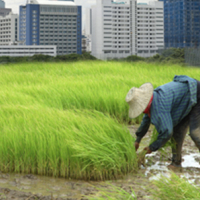Problems with recording the spread of COVID-19 in developing countries: Evidence from a phone survey in Indonesia

During the COVID-19 pandemic governments in developing countries tended to underestimate the actual spread of the pandemic due to limited number of tests. To provide alternative to the government announced COVID-19 figures, many non-governmental agencies/individuals used various methods to gather data on the spread of the pandemic. One of the methods applied is phone survey approach of directly asking respondents whether they are infected and how the sickness impacts on their livelihood. This paper focuses on evaluating the reliability and usefulness of this approach by carefully conducting a phone survey on our own. The findings suggest that by developing a careful algorithm, a phone survey might be able to provide a better estimate than those announced by the government in developing countries where capabilities of conducting COVID-19 test are limited. Nevertheless, our findings also reveal that the reliability of a phone survey could be low when the response rate is too low.
Keywords: Indonesia, COVID-19 pandemic, phone survey, developing countries,
JEL code: I18, I15, C83, H12
Updated: 18 October 2024/Responsible Officer: Crawford Engagement/Page Contact: CAP Web Team






